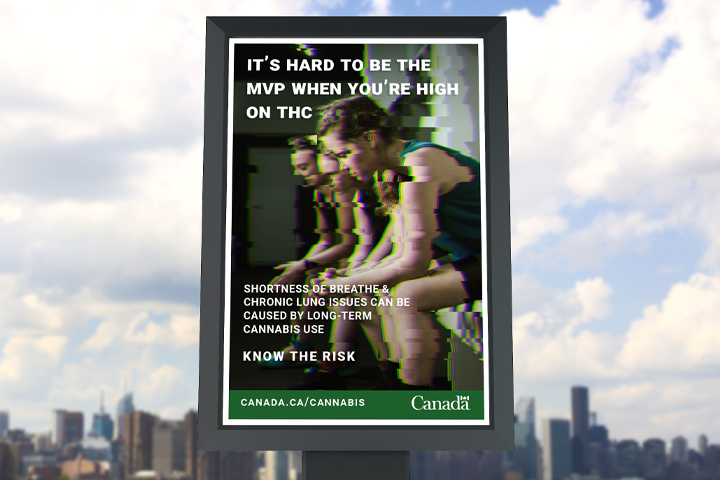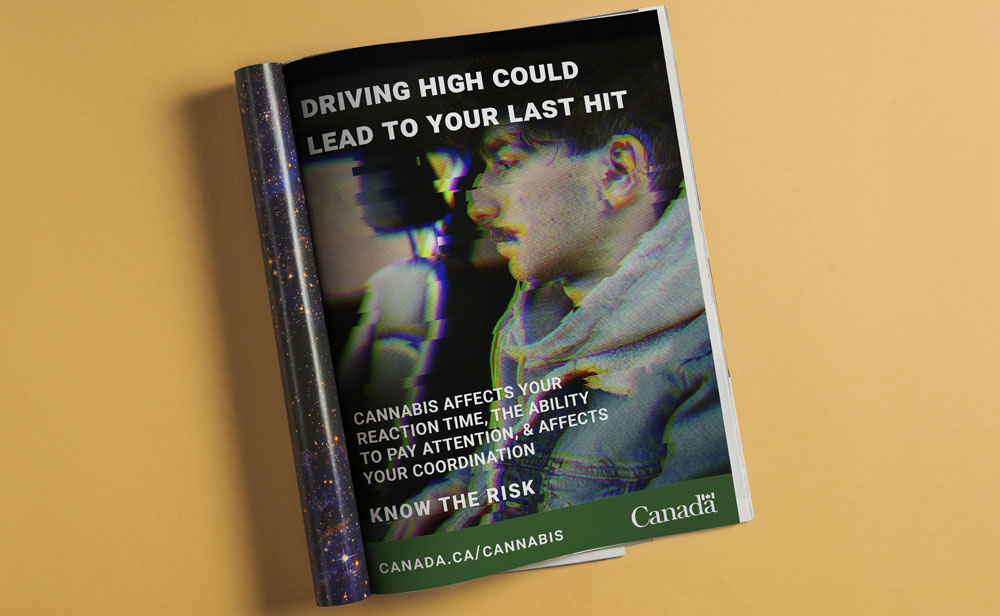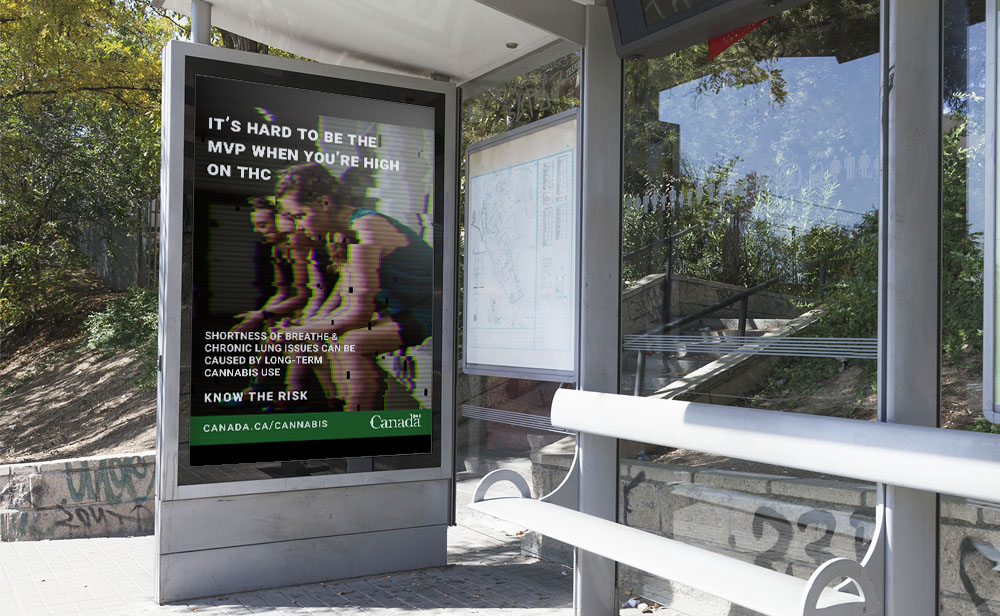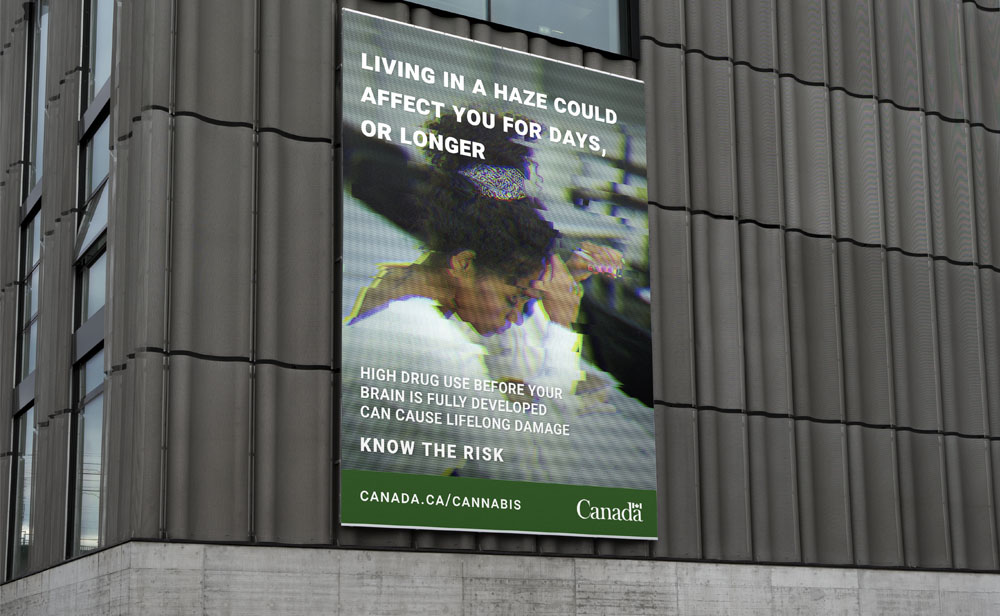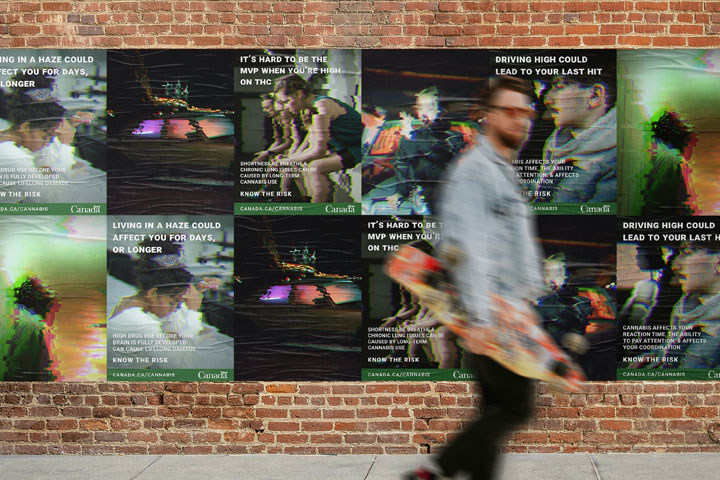
My main goal with the research was to see what previous awareness campaigns and what worked
in them and what didn’t, since we would be doing this in a legalized environment. Most
campaigns had a direct message of “Don’t do drugs”, but I felt this wasn’t the most
effective way to promote awareness when people of age are able to consume marijuana. I used
the Health Canada site to look at the stats of teenage drug use and was incredibly surprised
to see that most teens have tried drugs in some form during high-school.
I decided to go the route of giving actual information and why drug use as teenagers could
be damaging in the long term, but more playful than just facts. I really wanted the message
to come across as catchy, but with an underlining tone of health and awareness. Many of the
articles I read during my research showed that teenagers don't respond as well to ads or
PSA's that promote abstinence only solutions.
The taglines are meant to be informational and not direct rules teens should follow.
Providing teenagers with facts and knowledge is a more effective way to help them make
better decisions on drug use and abuse.


